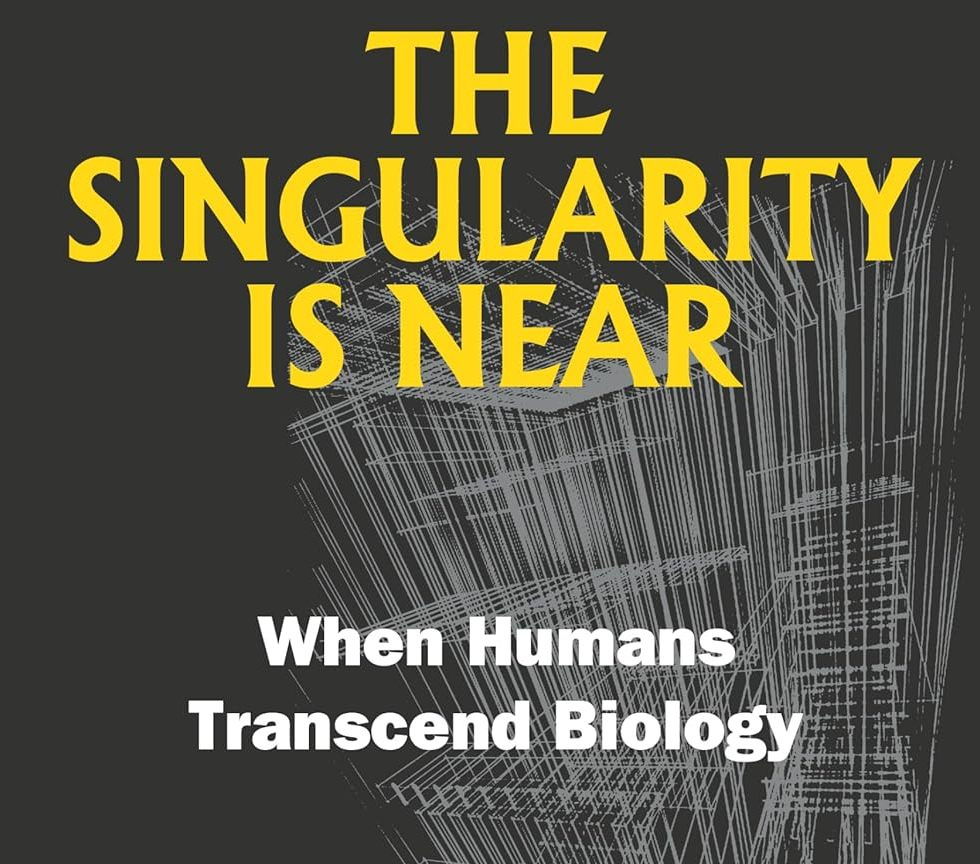Singularity and Its Malcontents
A critique of Ray Kurzweil's transhumanist manifesto The Singularity Is Near.
In my last four reflections, I narrated my personal journey out of Christianity and towards atheism. In some sense, my heroine Quibble undergoes such a journey, albeit accelerated. Coming Without, she quickly transitions from mere apostasy — her repudiation of Unity’s control — to a rejection of the belief that Ones transcend when they’re rectified. With the reappearance of the rectified Epigraph as a Utopian avatar in chapter 19, Quibble’s rejection of transcendence is put to the test. Here’s evidence that Ones transcend. In the next two chapters, “Heretic” and “Blue,” Quibble will get a dire warning about the dangers of religious fanaticism. So, in this part of the novel, I’m really starting to explore the two sides of the coin of belief.
Dangerous currency.
The novel can speak for itself about fanatical theocracy, and I’d rather it does. Before we leave behind the theme of religion, though, I want to draw a vital connection to the next theme we’re putting under the microscope, namely the Singularity.1 For it seems to me that the Singularity’s foremost advocates — and many of its architects in Silicon Valley — have a potentially catastrophic tendency to envision what it will be with religious fervor, with the zeal of the prophets of old.
Their prophecies of the next century’s technological advancements often couch their fervor in language meant to allay concern, to reassure us. Jargon-heavy, their rhetoric suggests they are visionaries, yes, but they’re only following the thread of scientific inquiry to its inevitable end, and that end must be progress. “However revolutionary our proposals are,” this rhetoric implies, “you can’t accuse us of zealotry. Believe us, we’re carefully thinking this through.”
From a technical standpoint, surely they are. But occasionally their philosophy about the Singularity reveals what they aren’t contemplating, what questions they haven’t answered or perhaps even bothered to ask. For instance, this pronouncement from an eminent futurist is replete with platitudes, fuzziness, and open questions:
The Singularity will represent the culmination of the merger of our biological thinking and existence with our technology, resulting in a world that is still human but that transcends our biological roots. There will be no distinction, post-Singularity, between human and machine or between physical and virtual reality. If you wonder what will remain unequivocally human in such a world, it’s simply this quality: ours is the species that inherently seeks to extend its physical and mental reach beyond current limitations. Many commentators on these changes focus on what they perceive as a loss of some vital aspect of our humanity that will result from this transition. This perspective stems, however, from a misunderstanding of what our technology will become. All the machines we have met to date lack the essential subtlety of human biological qualities. Although the Singularity has many faces, its most important implication is this: our technology will match and then vastly exceed the refinement and suppleness of what we regard as the best of human traits.
—Ray Kurzweil, The Singularity Is Near: When Humans Transcend Biology
Kurzweil’s book is a six-hundred-page doorstop, no light reading even for a scientist or a tech enthusiast, but this paragraph is key to understanding all the rest. It spells out Kurzweil’s philosophy and summarizes his utopian vision, succinctly. So you’d think he would unpack it, right? You’d think he’d explain “what we regard as the best of human traits” — or at least what he believes they are — and why he’s confident the Singularity will match and exceed those traits specifically, not any others.
Because surely he has thought about the worst of human traits, hasn’t he? And how — or whether — the Singularity will weed them out? And if it won’t weed them out, just how it might amplify or transmute them? Right? Hasn’t he?
No, actually. In this book, Kurzweil leaves such tedious considerations by the wayside.
Keep reading with a 7-day free trial
Subscribe to Singular Dream to keep reading this post and get 7 days of free access to the full post archives.


